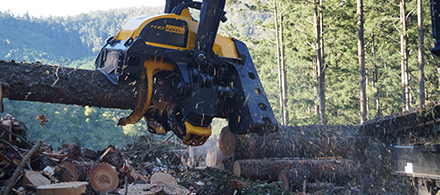Everyone knows there is a shortage of labor across the board in Australia at the moment.
There is barely an industry not touched. The jobs are there but filling them is a major headache for employers.
The timber industry is not immune, and the focus is well and truly on the lack of drivers and now contractors.
The attraction and skilling of drivers in the forestry industry is a national problem and the simple fact is that the industry is not attracting or growing the talent pool.
The Australian Forest Contractors Association, in order to increase capacity for the future, has recognised the need for an industry specific program that develops the right skills and get participants excited about working in the industry.
With that in mind, AFCA and Skills 360 developed an industry specific program in 2022 in an attempt to fill the log-truck driver shortage in South East Queensland.
The program is funded by the Queensland Government under the Skilling Queenslanders for Work program, which aims to re-engage longer-term unemployed Queenslanders by providing a unique, industry specific program which gets them ready for work.
And now Parkside Forestry in Queensland is having trouble finding harvesting crews.
Parkside needs two crews urgently to meet its expansion plans. The work is long term in both State Government and privately owned forests. But the crews simply aren’t there.
Parkside concedes that it has strict rules when employing contractors. They need to adhere to all the national heavy vehicle regulating rules, or sustainable forest management rules and comply with our work health and place safety rules.
The company also concedes that the work is hard, and often in remote locations.
Is Parkside asking too much, or are there just not enough contractors to go around because so many in Victoria and Western Australia have left the industry for obvious reasons?
Anecdotally it’s the latter. In Gippsland in particular it is well known contractors started selling up years ago in advance of the State Government’s closure of the native timber industry from 2030.
It may be safe to assume the same in WA where the industry shuts down next year, however, the tyranny of distance is probably also an issue.
This problem is not going to go away, and the reality is that it’s probably going to become worse.
Are you a Daily Timber News subscriber? If not, click here to join our mailing list. It’s free!






